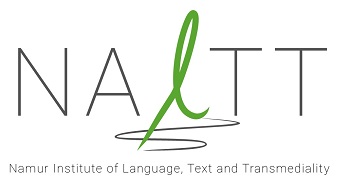Research strands
01_Language practices, language policy and planning in linguistically diverse settings
Analysis of different sorts of language practices in different (formal as well as more informal) settings of language use, combined with the analysis of the complex interaction of multiple layers of society in the co-construction of language policy and planning frameworks aimed at regulating or changing the dynamics of existing language use practices.
02_Structural and discursive properties of linguistic constructions and language varieties
The in-depth analysis of morphological, semantic, syntactic and discursive properties of linguistic constructions and language varieties from the perspective of functional, cognitive and sociolinguistics.
03_Multilingualism and language acquisition
Analysis of (the history of) different models of multilingual education in Belgium (especially in the Fédération Wallonie-Bruxelles) with a special focus on the linguistic, socio-affective and educational aspects of CLIL (Content and language integrated learning) and of the role of those three perspectives in L2 acquisition processes.
04_Translation and heterolingualism as language contact and intercultural transfer
The theoretical and empirically based study of translation as a fundamental mechanism of language contact and intercultural communication. The focus is not on teaching/defining ‘how to translate’ in practical terms but on studying the historical realities of translation with a special focus on the role it plays in the development of languages, literatures, cultures, and societies.
05_Literature, society and transmediality
Analysis of the many ways in which literature interacts with its social contexts, either as an effort to represent social trends in a referential (‘descriptive’, ‘realistic’) manner, or in a more ‘politically’ committed mode, with writers giving critical comments on society or even using their work to serve an openly reformist agenda. Given this focus on the social embedding of literature, and considering the pervasiveness of ideological formations, this analysis does not restrict itself to individual texts in the traditional print medium, but is specifically alert to the intertextual and transmedial circulation of texts and discourses.
06_Literary practices and concepts across space and time
The study of literary practices (discourses, genres, themes, techniques), broadly understood to also include more ‘popular’ and multimedial genres, from an inclusive comparative perspective. This study can take a more specifically historical orientation, or it can give special attention to issues of methodology (including philology and text edition) and conceptualisation (terminology, concepts, theories).

